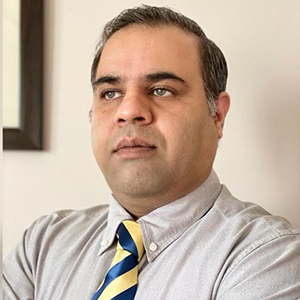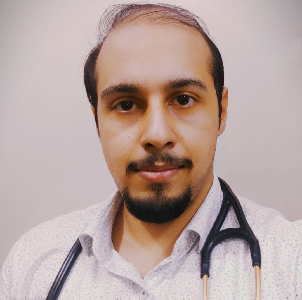European Specialty Exam in Nephrology
ESENeph
 4.2 Star Rating
4.2 Star Rating
SCE Exam Date - 9th Sep 2026
Days
Hours
Mins
Secs
What is the Nephrology SCE?
The Nephrology SCE (Specialty Certificate Examination) is a standardised assessment developed to evaluate the expertise, abilities, and proficiency of medical professionals in the realm of nephrology, which focuses on the study of kidneys and their functions.
Starting from February 2020, the Nephrology Specialty Certificate Examination (SCE) and the European Certificate in Nephrology joined to create a single test called the European Specialty Examination in Nephrology (ESENeph). This was made possible through cooperation between the UEMS Renal Section and Boards and the European Renal Association (ERA).
The exam is managed together by the European Section and Board of Nephrology (ERA), the UK Kidney Association, and the Federation of the Royal Colleges of Physicians of the UK. In the UK, the General Medical Council (GMC) sees this exam as the necessary test of knowledge for Renal Medicine trainees. It is required to get a Certificate of Completion of Training (CCT) and join the Specialist Register.
The main goal of this combined exam is to improve standards and promote consistency in nephrology education across the European Union.
Frequently Asked Questions
Following a review of candidate performance in the UK, the UEMS Renal Section and Board now recommends that UK trainees pursuing dual accreditation in General Internal Medicine and Nephrology attempt the exam during their ST5 year.
This ensures they have the opportunity for three attempts before completing their CCT. Trainees in single accreditation programmes might want to contemplate a first attempt during their ST4 year. European Union candidates usually sit the examination towards the conclusion of their specialisation.
All ESE exams are computer-based and conducted by Pearson VUE at testing centres in the UK or abroad. For UK applicants, the application process entails:
- Registering online via My MRCP(UK) (candidates may indicate any special arrangements at this stage)
- Paying the relevant exam fee
- Receiving an automated email confirming the application
- Contacting Pearson VUE to choose a testing centre (refer to the exam dates calendar for the Pearson VUE booking window's opening for each exam)
- Receiving a confirmation email from Pearson VUE regarding the testing centre
For UEMS Renal Section and Boards full member, associate member, observer country candidates, and other international applicants, the process involves:
- Registering online via My MRCP(UK) (candidates may indicate any special arrangements at this stage)
- Requesting the desired test country and city
- Paying the relevant exam fee
- Receiving an automated email confirming the application
- Receiving a confirmation email from Pearson VUE regarding the testing centre within four weeks of the exam date
To prepare for the Nephrology SCE, a broad understanding of the curriculum is necessary, which can be achieved through reading textbooks, journals, and guidelines. Familiarity with the MRCP(UK) examination format will provide a solid foundation for approaching the SCE. Recommended reading materials include:
Journals
- American Journal of Kidney Diseases
- Clinical Kidney Journal (CKJ)
- Journal of the American Society of Nephrology
- Kidney International
- Nephrology, Dialysis and Transplantation
Textbooks
- American Journal of Kidney Disease – publishes the US core curriculum in nephrology which gives detailed notes across the entire renal curriculum
- Comprehensive Clinical Nephrology (Eds Feehally, Floege, Johnson)
- Handbook of Kidney Transplantation (Eds Danovitch et al)
- Oxford Handbook of Dialysis (Eds Levy et al)
- Oxford Textbook of Nephrology (Eds Davison et al)
Benefits of our ESE Nephrology Revision
655 Nephrology Questions
Feel confident for your exam with our clinically rich question bank and mock exam, reflective of the MRCP SCE Nephrology blueprint.
Instant Answers & Feedback
Learn more than just the right answer by receiving further reading and a full explanation of answers to deepen your knowledge and understanding.
Frequently Updated
Our experts regularly review and add new nephrology questions, meaning you'll receive the most up-to-date revision material available!
Reflective Revision
Compare peer responses, make online revision notes, submit your queries to our ESENeph Editor and benefit from unlimited resits.
24/7 Access
Learn around your busy schedule by accessing our ESENeph questions whenever and wherever you’d like - all you need is an internet connection!
Specialist CPD
Demonstrate your capability by gaining a CPD Certificate on successful completion of our Renal SCE question bank.
ESENeph: Free Sample Questions
No card details required! Simply create an account to access free Nephrology SCE sample questions taken from this full-priced ESENeph revision resource.
Topics Covered in our ESENeph Resource
Since February 2020, the Specialty Certificate Examination (SCE) in Nephrology and the European Certificate in Nephrology have merged to become one single exam: European Specialty Examination in Nephrology (ESENeph).
This online ESENeph revision is the most extensive and affordable resource of its kind. Consisting of 655 Nephrology MCQs, including 100 multiple-choice questions assigned to our 3 hour mock exam, our resource will ensure you’re thoroughly prepared for this challenging exam.
The ESE Nephrology question bank, which we recommend you complete before attempting the mock exam, mirrors the MRCP SCE Nephrology blueprint and is divided into the following topics:
Glomerulonephritis, tubulointerstitial nephritis
Chronic kidney disease, haematuria, proteinuria
Renal bone disease, renal anaemia
Cardiovascular disease, hypertension, renovascular disease and diabetes
Acute kidney injury, acute renal replacement therapy, disorders of fluid, electrolytes and acid base
Urological presentations including renal stone disease, urinary tract infection and obstruction
Inherited and rarer diseases
Peritoneal dialysis
Haemodialysis
Renal transplantation
Other
ESENeph Resource Editor
ESENeph Resource Authors
Meet the authors who have contributed to our question bank so far! Our entire faculty have the right experience, qualifications and expertise that make them the perfect candidates to write high-quality, relevant material for our ESENeph revision.
Click a photo to read their biographies...
Comparison | ESENeph Revision
Learna | StudyPRN
ESENeph Revision Resource
£89.00
3 Months
Free Trial
655 Questions
21 Day, No Quibble Refund Policy
OnExamination
ESENeph Revision Resource
£74.99
3 Months
Free Trial
240+ Questions
14 Day Refund Policy (only if unused)

















